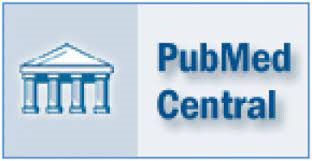Thyroid Function and Thyroid Autoimmunity in Relation to Weight Status and Cardiovascular Risk Factors in Children and Adolescents: A Population-Based Study
Emilio García-García1, María A. Vázquez-López1, Eduardo García-Fuentes2, Rafael Galera-Martínez1, Carolina Gutiérrez-Repiso2, Icíar García-Escobar1, Antonio Bonillo-Perales11Hospital Torrecárdenas, Clinic Of Pediatrics, Almeria, Spain2Hospital Carlos Haya, Clinic Of Endocrinology And Nutrition, Malaga, Spain
Objective: In obese subjects, slight increases have been observed in thyrotropin [thyroid-stimulating hormone (TSH)] levels, but data in children are scarce. The aim of this study was to evaluate whether thyroid function and autoimmunity vary with weight status in a healthy population of children and adolescents and to determine whether hyperthyrotropinemia is associated with any cardiovascular risk factor.
Methods: This cross-sectional epidemiological study was conducted in Almería (Spain) on a representative sample of 1317 healthy subjects aged 2-16 years. Thyroid function, thyroid autoimmunity and cardiovascular risk factors were measured. Chi-square test, analysis of variance and multiple linear regression were used in the statistical analyses.
Results: The obese children and adolescents had thyrotropin levels (mean ± standard deviation) of 3.12±2.44 mU/L. These levels were higher than those of overweight subjects (2.79±1.51 mU/L) and of normal weight subjects (2.73±1.30 mU/L) (p=0.02). Levels of free thyroxine and urinary iodine did not differ significantly between the groups. The prevalence (95% confidence interval) of thyroid autoimmunity was lower in the individuals with normal weight (2.9%; 2.0-4.2) than in the overweight (6.3%; 3.9-9.9) and obese subjects (5.6%, 2.5-11.3) (p=0.02). TSH levels were associated with obesity (ß=0.36; p<0.001) and thyroid autoimmunity (ß=1.10; p<0.001). They were not associated with any cardiovascular risk factor
Conclusion: Obese children and adolescents had higher levels of thyrotropin than those who were overweight and of normal weight. The differences among the groups were of very little clinical significance and could possibly be linked to the higher prevalence of thyroid autoimmunity in obese subjects. The hyperthyrotropinemia in these subjects was not associated with any cardiovascular risk factor.
Manuscript Language: English



























